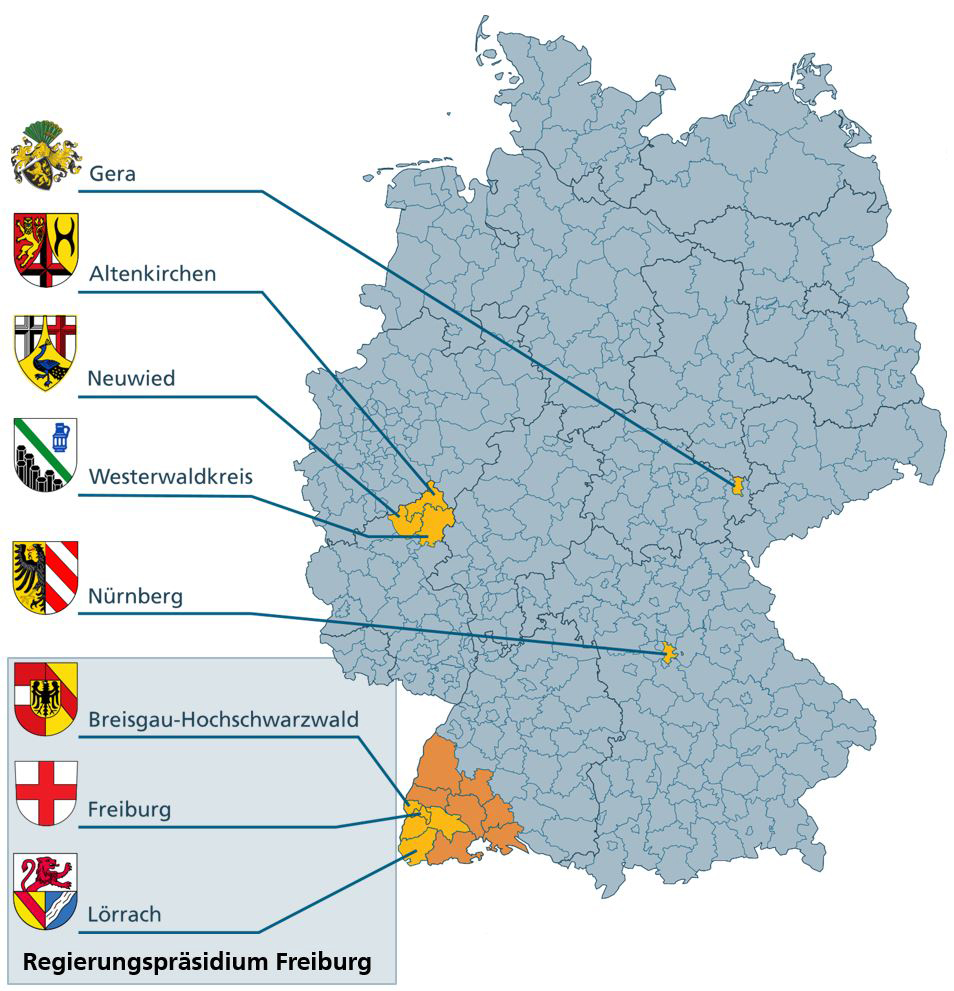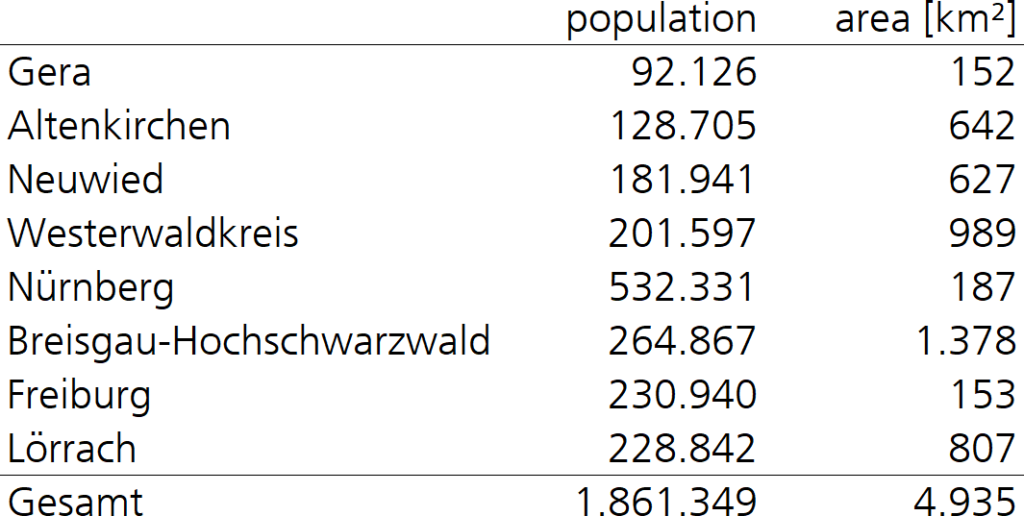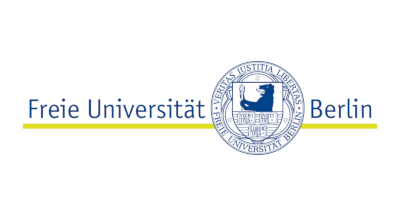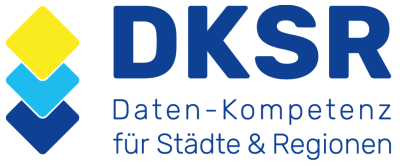Close cooperation with municipalities as well as security forces is essential for the success of our project; because only in cooperation with the relevant users can we design the envisioned data room to meet their fundamental requirements and needs. We are also happy to benefit from the specific expertise of our project partners.
Consortium members
The Fraunhofer Institute for High-Speed Dynamics, Ernst-Mach-Institut, EMI, is an institute of the Fraunhofer-Gesellschaft, the world’s leading applied-research organization. Its mission is to offer first-class research services and cutting-edge technology to customers from the industries and the public sector in the fields of defense, security and resilience, automotive, space and aviation. For the German Federal Ministry of Defence (BMVg), we act as excellent and independent partner with our analyzing and consulting expertise concerning questions of research and technology.
Recent disasters around the world, both man-made and caused by extreme weather conditions, demonstrate dramatically that our societies face ever-increasing challenges to our security and resilience. Growing complexity at all levels entails risks and makes systems vulnerable. Fraunhofer EMI investigates technologies and develops new solutions to make our society and infrastructure robust, tolerant and therefore resilient against multi-faceted threats like terrorist attacks, natural disasters or accidents. Apart from issues concerning technical reliability, robustness, calculable risks and resilience, aspects of sociotechnical systems are gaining more and more attention in research.
The Fraunhofer Institute for Software and Systems Engineering ISST works with companies to identify the strategic value of their data and make it usable – from data preparation to the development of new business models, the institute offers complete system solutions. The scientists research the value of and confident handling of data in data spaces for logistics, healthcare and the data economy. They develop solutions for data management and the construction of data architectures.
Fraunhofer ISST plays a leading role in strategic digital initiatives in Germany and Europe. Examples are the International Data Spaces Association (IDSA) and the Gaia-X, European Association for Data and Cloud AISBL, which aim at cloud and data sovereignty and thus create the basis for a fair data economy in Germany and Europe.
In this way, the institute is creating data spaces for secure and controllable data use across company boundaries with its customers and partners from industry and as an advisor to politics — for Germany, Europe and worldwide.
To establish sustainability as the guiding principle in the development of technical systems — with this goal in mind, the University of Freiburg founded the new Institute for Sustainable Technologies — INATECH — in October 2015.
At its heart is a dedicated engineering approach to finding technical solutions to challenges that emerge from the core issues of sustainable development.
One research focus is quantifying the resilience of complex socio-technical systems on a strategic level. In addition, methods, measures and technologies are developed on this basis in order to be able to increase resilience efficiently.
Associated Partners
End Users
We are committed to delivering optimal as well as custom-tailored solutions for this research project. In addition, we intend to continuously verify real-world applicability of the solutions developed. To this end, the fire departments or offices for disaster control of various municipalities are directly involved in this project. This close cooperation with the municipalities and security forces is fundamental for the success of our project.
Involved administrative units
We are happy to have the following administrative units as partners:

As illustrated by the following tables, the local authorities involved are quite diverse. This allows us to study for instance the impact of the Corona pandemic in terms of different baseline situations, which is extremely valuable for the heuristic analyses we are working towards.
Landkreise & kreisfreie Städte (yellow)


Research
The German Research Center for Artificial Intelligence (DFKI) has operated as a non-profit, Public-Private-Partnership (PPP) since 1988. Today, it maintains sites in Kaiserslautern, Saarbrücken, Bremen, Niedersachsen, laboratories in Berlin and Darmstadt, as well as branches in Lübeck and Trier.
DFKI combines scientific excellence and commercially-oriented value creation with social awareness and is recognized as a major “Center of Excellence” by the international scientific community. In the field of artificial intelligence, DFKI has focused on the goal of human-centric AI for more than 30 years. Research is committed to essential, future-oriented areas of application and socially relevant topics. Currently, with a staff of about 1,560 employees from more than 76 countries, DFKI is developing the innovative software technologies of tomorrow. The financial budget was 82.6 million euros in 2022.
Freie Universität Berlin is a young, international university with a unique history. It is one of eleven Universities of Excellence in Germany. In the global competition among universities Freie Universität takes its place as an international network university. The university’s offices abroad in Beijing, Brussels, Cairo, New Delhi, New York, Moscow, and São Paulo provide a platform for international cooperation. In the 2017 ranking of the Times Higher Education magazine, Freie Universität was listed among the five best German universities. In the same ranking the humanities at Freie Universität were found to be among the best 20 globally. The Funding Atlas issued by the German Research Foundation also places Freie Universität among the top five German universities. Located in the quiet southwestern part of Berlin, the university is part of one of the largest research sites in Europe.
The University of Freiburg was founded in 1457. Nestled in the city center, the University has received multiple national awards as one of the best universities in Germany for its excellent research and teaching, and it is a creative, inspiring, and enjoyable learning, researching, and living environment for its roughly 25,000 students.
The University of Freiburg has always attracted extraordinarily talented women and men who want to live in the city and take advantage of the University’s ideal conditions to realize their research dreams. Twenty-three Nobel Prize laureates have researched, taught, and/or studied at one of the University of Freiburg’s faculties, and its achievements regularly earn it a high standing in national and international university rankings. It is currently listed as one of the top five comprehensive universities in Germany and one of the best 100 universities in the world.
Data Management
For sustainable smart cities and regions — In the face of increasingly complex challenges, the use of urban data provides municipalities and municipal enterprises with the best basis for designing sustainable smart cities and regions: living spaces that offer what their citizens need. Now and in the future.
The Data Competence Center for Cities and Regions (DKSR) supports municipalities and municipal enterprises in the use of data-based applications for urban and regional development.
Sovity is an all-in-one Data Sovereignty as a Service (DSaaS) provider.
Sovity has a deep knowledge and experience in the field of data sovereignty trough an academic, research and industrial background. Since its origin, it is shaping the data spaces and is ready to scale data ecosystems. Sovity’s strong experts in cloud-native development and cloud operations complete its skill set for a full-range DSaaS expertise.









![BMBF_CMYK_Gef_M [Konvertiert] BMBF_CMYK_Gef_M [Konvertiert]](https://www.heraklion-projekt.de/wp-content/uploads/elementor/thumbs/logo-bmbf-en-qb3j25wttvfweonrkia52lfny1aptdsp2g9lnh48ao.jpg)
